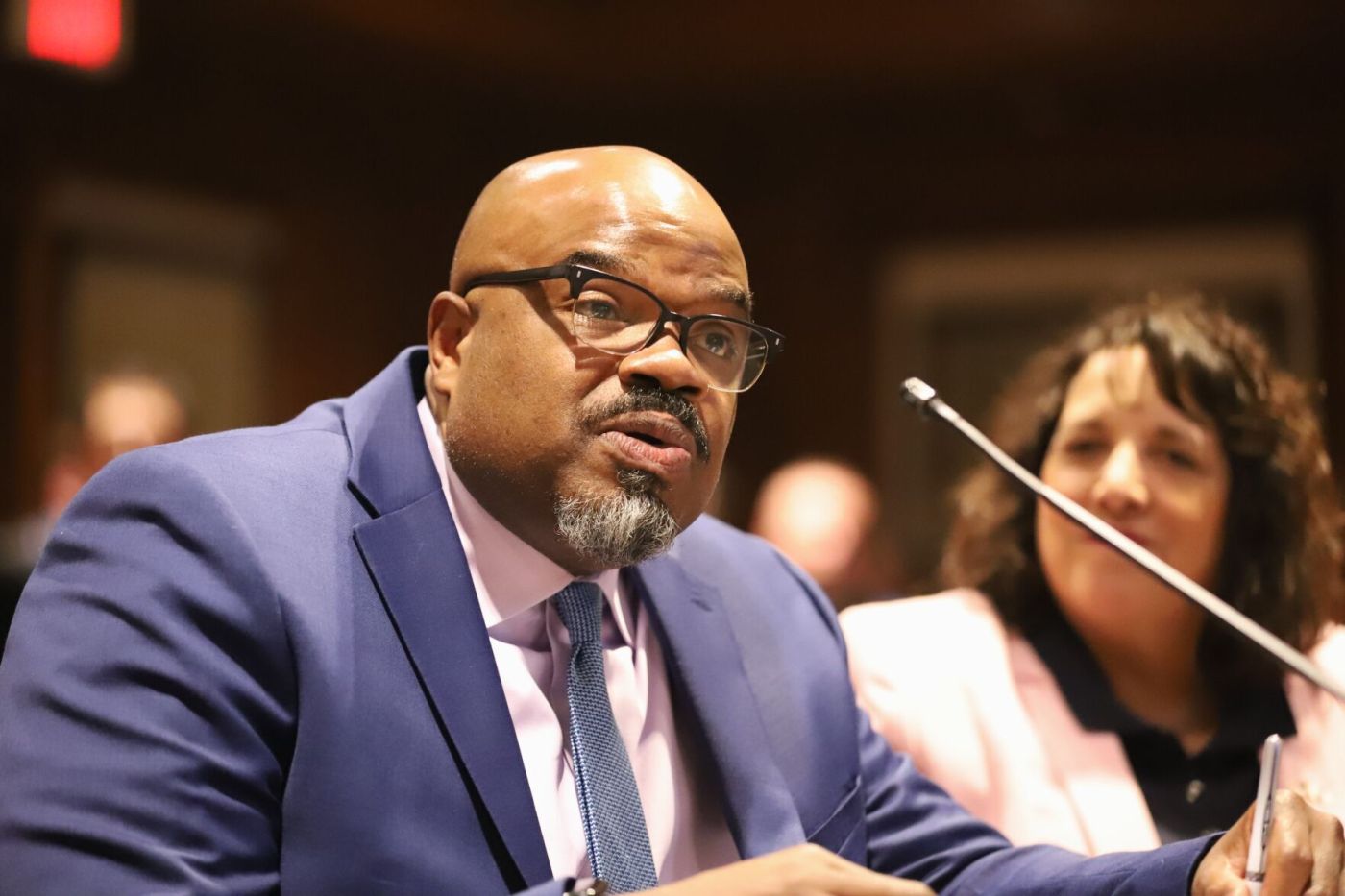Education
Massachusetts Proposes New Path for High School Graduation Criteria

High school students in Massachusetts may soon face new graduation requirements tied to specific coursework. This comes as state officials consider draft regulations from the Statewide K-12 Graduation Council, formed to establish a permanent standard after voters eliminated the MCAS graduation requirement last year.
The preliminary regulations propose that students demonstrate mastery of their subjects through end-of-course assessments, which would be designed and administered by the state. This shift aims to create a uniform standard for graduation across Massachusetts. In November 2024, voters decisively approved a ballot measure to decouple the MCAS exam from diploma eligibility by a margin of 59% to 41%.
Key state leaders, including Governor Maura Healey, Senate President Karen Spilka, and House Speaker Ron Mariano, opposed the ballot initiative, citing concerns about its potential impact on educational consistency and equity. Supporters of the measure argued that the MCAS exam imposed unnecessary barriers to graduation for about 1% of students each year, while critics maintained it failed to adequately measure student learning. They worry that eliminating a state exam might exacerbate disparities in educational standards across districts.
A significant aspect of the Graduation Council’s proposal involves replacing the MCAS with alternatives such as end-of-course exams and other assessments. The draft also suggests that students participate in capstone projects or portfolios, which would be defined by the state but designed and assessed locally. This approach aims to offer customized opportunities for students to demonstrate their mastery of subjects.
Jason Fraser, president of the Massachusetts Association of School Committees and a member of the advisory council, expressed concerns regarding the potential reintroduction of standardized tests under a different name. In a letter to members, he stated, “Based on the ‘Mastery’ section of the Preliminary Recommendations, we fear that the language suggests the possibility of state-created, state-graded, high-stakes testing.” He cautioned that such a move could contradict the will of voters who recently opted against high-stakes testing as a graduation requirement.
Fraser further noted that Secretary of Education Patrick Tutwiler has emphasized that the council’s recommendations would be advisory, with final decisions resting solely with the governor. A spokesperson for the Executive Office of Education, Alana Davidson, reiterated that the council’s work is ongoing. “The Statewide K-12 Graduation Council is charged with recommending a new vision for statewide graduation requirements that ensure all students leave high school with the skills necessary to succeed,” she said.
The council has undertaken extensive stakeholder engagement, conducting eight statewide listening sessions and collecting thousands of survey responses to gather input. The Department of Elementary and Secondary Education reported that over 400 stakeholders participated in these sessions, which included students, parents, educators, and business leaders. A separate statewide survey garnered responses from more than 6,600 individuals, and an additional survey focused on graduation practices included 103 district leaders.
The council aims to release its initial findings later this fall, with a final report and roadmap expected in 2026. According to the Department of Elementary and Secondary Education, the recommendations will help ensure that all students meet high expectations.
In addition to the proposed assessments, the draft framework seeks to align curriculum requirements with MassCore, the state’s recommended high school course of study. Students would also be expected to complete a “MyCAP” (My Career and Academic Plan), receive financial literacy instruction, and have options to earn seals of distinction for academic or civic achievements.
The draft regulations would require all students to complete the FAFSA and the Massachusetts Financial Aid Application (MASFA), though an opt-out provision would be available. This requirement aligns with legislative efforts to increase access to postsecondary education. Currently, about 57% of Massachusetts high school seniors complete the FAFSA, a figure that drops to just below 40% for low-income students compared to nearly 70% for their higher-income peers, according to the National College Attainment Network.
The ongoing discussions within the Graduation Council emphasize the importance of creating equitable and comprehensive graduation standards that reflect the diverse needs of students across Massachusetts.
-

 Technology5 months ago
Technology5 months agoDiscover the Top 10 Calorie Counting Apps of 2025
-

 Health2 months ago
Health2 months agoBella Hadid Shares Health Update After Treatment for Lyme Disease
-

 Health3 months ago
Health3 months agoErin Bates Shares Recovery Update Following Sepsis Complications
-

 Technology4 months ago
Technology4 months agoDiscover How to Reverse Image Search Using ChatGPT Effortlessly
-

 Technology1 month ago
Technology1 month agoDiscover 2025’s Top GPUs for Exceptional 4K Gaming Performance
-

 Technology2 months ago
Technology2 months agoElectric Moto Influencer Surronster Arrested in Tijuana
-

 Technology5 months ago
Technology5 months agoMeta Initiates $60B AI Data Center Expansion, Starting in Ohio
-

 Technology5 months ago
Technology5 months agoRecovering a Suspended TikTok Account: A Step-by-Step Guide
-

 Health4 months ago
Health4 months agoTested: Rab Firewall Mountain Jacket Survives Harsh Conditions
-

 Lifestyle5 months ago
Lifestyle5 months agoBelton Family Reunites After Daughter Survives Hill Country Floods
-

 Technology4 months ago
Technology4 months agoHarmonic Launches AI Chatbot App to Transform Mathematical Reasoning
-

 Technology3 months ago
Technology3 months agoUncovering the Top Five Most Challenging Motorcycles to Ride




















